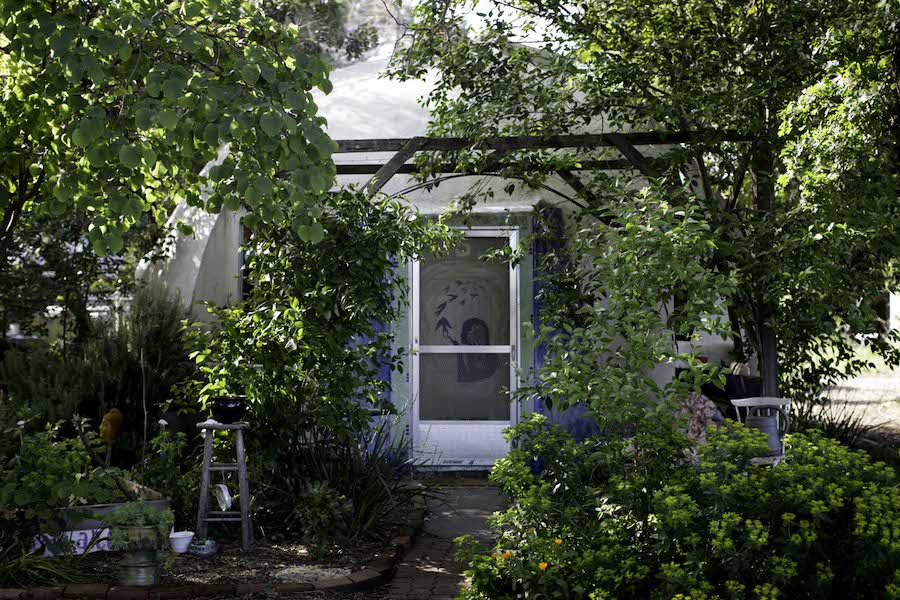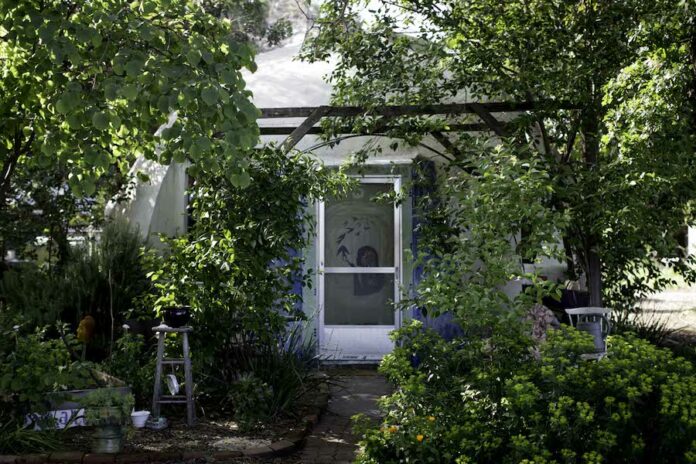
 Botanical decolonization on J Street
Botanical decolonization on J Street
WestCo is an annual conference where cooperatives along the West Coast meet to exchange ideas and resources. This year, Davis hosted the event. I was super hyped about experiencing WestCo, so much so that I most likely imposed upon it impossible expectations and optimisms about how the programs would run and what conversations would be had. The workshops I attended were based on messy topics like sustainable food systems that don’t have definite answers. Admittedly, as an outsider knowing little to nothing about co-oping and specific approaches to sustainability, these workshops may have seemed unorganized because I had a very shallow understanding of topics being discussed.
Thinking about sustainability is not a linear process. Cooperative living is not as easy as co-opers make it look in their successes, and it’s definitely not a lifestyle choice like choosing to live in the suburbs or a new city. It is inherently political, personal and tied to real-world problems that are hard to solve. Cooperative living extends past theorizing about systemic issues one wishes to solve through a professional career into actually living with those issues as part of day-to-day reality. In practicing botanical decolonization, the co-opers at J Street embody the latter way of life.
When I arrived at the J Street Co-op, I was warmly greeted by Emma Torbert and Katie Fyhrie, the project designers and workshop leaders. They explained where the idea of planting a garden full of native plants came from, and how they ran with that idea to implement their own botanical decolonization, which took a lot of design and research. They stressed that they are learning throughout the process too and are liable to make mistakes — but they are open to suggestions and new knowledge. This was admirable because it’s often assumed that people doing important work should be experts in their field, but usually that only comes through experience, and with experience comes mistakes. Once enough people showed up to help, we were given a basic introduction to planting and then got to work putting native plants into the soil from which they historically hail.
I met co-opers from Berkeley and Santa Barbara who had their own ideas about sustainability. As we talked about the pros and cons of monoculture, we put fuschia, deer grass, wildflowers and purple needlegrass into the ground, selected for their water retention and compatibility. There’s something therapeutically gratifying in planting a garden that’s amplified by knowing that it’s for a specific, revitalizing purpose. I felt a wash of calm serenity as I dug, planted, sifted and rubbed the cool clay-like dirt between my fingers.
The term native is complicated when applied to plants. The text that inspired the workshop at J Street, Botanical Decolonization of Native Plants, explains that discussing native plants has become popular in ecological and sociological academic spheres. It deals with specific contexts concerning “the legacy of settler colonialism, and dilemmas of scholarship and activism in the ‘Anthropocene.’” This is what has informed the specific framework in which the co-opers at J Street are working to decolonize their space. Their vision for the project is not only to be able to identify the native plant species of this region of California and have them planted, but also to utilize the presence of these plants in an interactive way, rather than as mere aesthetic fixtures in the landscape.
This interactive aspect is reflected in the design of the co-op garden, where the plants are placed in circular patterns of various sizes that contain spirals alternating between plants and space for people to sit and relax. A lot of the conversations, hangouts and cooperative plans at J Street are created by gatherings on the front porch. They wanted to extend that conversation, both in theoretical thought and literal practice, to the front lawn.
Botanical decolonization is now part of the physical framework of the J Street Co-op, an idea turned into a reality thanks to the innovative thinking and initiative of the people who live there. Cultivating resistance can be a painstaking, intimidating feat, as it takes a lot of love, time and work to become aware of different forms of oppression and then to unlearn them. But it can also be as doable as planting a decolonized garden on a leisurely Saturday afternoon. The seeds of revolution are sown in seemingly insignificant or discursive ways, but when they take root, they grow into a voluminous plume of foliage.
Written by: Camille Chargois — cachargois@ucdavis.edu
Disclaimer: The views and opinions expressed by individual columnists belong to the columnists alone and do not necessarily indicate the views and opinions held by The California Aggie.





